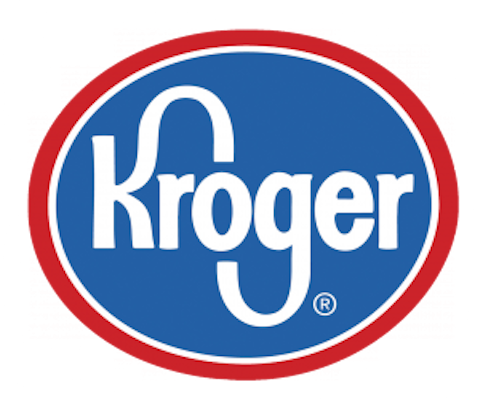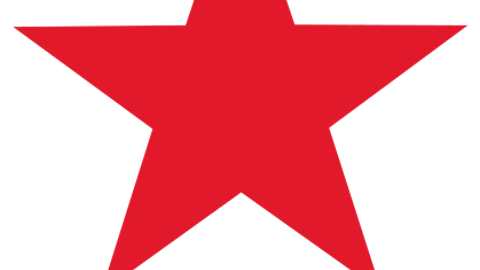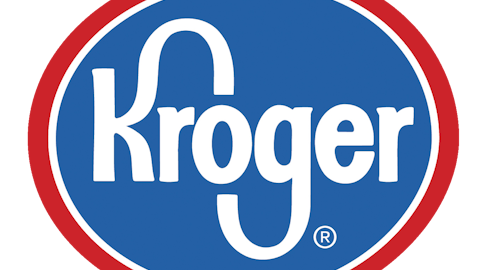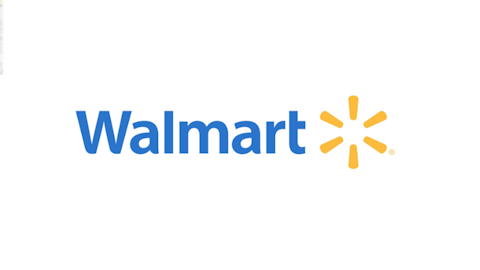America just witnessed the making of its 22nd publicly traded company to have an annual turnover of over $100 billion. The Kroger Co. (NYSE:KR), the country’s biggest grocery chain, has acquired the Charlotte, North Carolina-based upscale grocer, Harris Teeter. The combined revenue of the two companies is in excess of $100 billion. The Kroger Co. (NYSE:KR) investors are quite upbeat about the deal, and pushed up the share price to its 52-week high with a rise of 3.1% on the day the acquisition was announced.

But, just how strategic will this acquisition be for The Kroger Co. (NYSE:KR) in the long run? Let’s find out.
The deal
The Kroger Co. (NYSE:KR) paid $2.45 billion in cash to acquire 100% ownership of Harris Teeter. This is a 34% premium to the latter’s stock price on January 18 and roughly equal to its current market capitalization. The Kroger Co. (NYSE:KR) will also assume $100 million of Harris Teeter’s debt. Management foresees annual savings of $40 million – $50 million to evolve from the integration of the acquisition in the future.
According to Bloomberg, this is the fourth largest acquisition of a North American food retailer in the last 10 years. This deal brings The Kroger Co. (NYSE:KR) 212 additional stores to add to its existing store count of 2,419 and additional revenue of $4.5 billion to add to its existing revenue of $96.7 billion. This is the company’s biggest acquisition in the last 15 years since it took over Fred Meyer for over $12 billion.
Kroger fortifies its position in fresh produce
The big motivation behind this deal for Kroger is to strengthen its position in fresh produce. Harris Teeter is quite well known for its superior quality meat, fresh vegetables, and salad bar. And Kroger has been working on increasing its position in organic and natural food for some time. Its two private label brands Simple Truth and Simple Truth Organic were key revenue drivers in the last quarter.
Rival, Whole Foods Market, Inc. (NASDAQ:WFM) has already shown the market what can be achieved with organic food. The chain has just 349 stores, hardly a comparison to a giant like Kroger, but scores a point over the latter in terms of both margins as well as comparative store sales growth.
Whole Foods Market, Inc. (NASDAQ:WFM) had a gross margin of 36.4% compared to Kroger’s 20.6% and comps growth of 6.9% compared to Kroger’s 2.9% in their most recent quarters. And despite the gap in their annual revenue, their market capitalizations of around $20 billion are also comparable.
Now, with the acquisition of Harris Teeter, Kroger gets a more upscale banner to compete with the likes of Whole Foods Market, Inc. (NASDAQ:WFM). Moreover, the company can leverage its huge scale to achieve supply side efficiencies for Harris Teeter, which can help it become more price competitive. Kroger will retain the brand name and all of the Harris Teeter stores.
Geographic advantage
This acquisition also has another key advantage and that is establishing Kroger in the southeastern parts of the country where it does not have a significant presence. This includes the states of North and South Carolinas and Virginia. These states, on account of their many universities and tourist destinations, have quite a few growing markets where Kroger will get instant access. And the best part about them is that stores here tend to generate higher margins.
Now if we take Charlotte as an example, Harris Teeter is the largest grocer here with 58 stores and market share of 23.7%. Last year, it beat Wal-Mart Stores, Inc. (NYSE:WMT), which currently holds 20.4% share. On account of Charlotte’s growth potential, we find that both national and regional chains are drawn to this market like a magnet.
Wal-Mart Stores, Inc. (NYSE:WMT) is setting up both Supercenters and also smaller stores aimed to take on regional grocers. We also have Target which is increasing its presence, and Whole Foods Market, Inc. (NASDAQ:WFM) has just opened its first store. In terms of regional players, Food Lion has a big presence and third largest market share at 17.4% and Publix Super Markets is planning to get aggressive.
So, it was very important for Kroger, which did not operate in Charlotte earlier, to enter this strategic market. On the other hand it also made sense for Harris Teeter to sell out as competitive pressures were mounting on it. Now, with Kroger’s scale and Harris Teeter’s popularity the merged entity will be a force to reckon.
The Wal-Mart factor
Kroger’s biggest rival is Wal-Mart Stores, Inc. (NYSE:WMT). In fact, the latter is a formidable opponent to most retailers with its unmatched scale. Unluckily for Kroger, Wal-Mart Stores, Inc. (NYSE:WMT) has been focusing on groceries and has grown this business to account for 55% of its $274.5 billion annual revenue in 2012.
And this push still continues. Wal-Mart Stores, Inc. (NYSE:WMT) has a huge advantage over other retailers on account of its superior infrastructure. So, it is using its distribution centers and own trucks to get produce directly from the farmers into its stores with minimal transit time. This is helping in getting far better quality and freshness for the fruits and vegetables. The company is targeting to double its sales from locally grown produce within 2015.
Thus armed, Wal-Mart Stores, Inc. (NYSE:WMT) has just announced that it will provide money-back guarantee on fruits and vegetables at its domestic stores. It has also started training 70,000 of its employees on the ways to handle fresh produce.
With Wal-Mart being this aggressive in groceries, Kroger would need to consolidate its strengths. The Harris Teeter acquisition fills some important gaps in geographic reach as well range of merchandise.
Last word
The Harris Teeter acquisition has been very strategic for Kroger. The company already has a reputation for managing multiple banners without diluting their individual flavors. The acquisition fortifies Kroger’s position against both retail giants like Wal-Mart as well as niche players like Whole Foods Market, Inc. (NASDAQ:WFM). This will go a long way towards the company’s creating more shareholder wealth in the times to come.
Eshna De has no position in any stocks mentioned. The Motley Fool recommends Whole Foods Market (NASDAQ:WFM). The Motley Fool owns shares of Whole Foods Market. Eshna is a member of The Motley Fool Blog Network — entries represent the personal opinion of the blogger and are not formally edited.
The article This Giant Grocer Got Even Bigger originally appeared on Fool.com is written by Eshna De.
Copyright © 1995 – 2013 The Motley Fool, LLC. All rights reserved. The Motley Fool has a disclosure policy.




